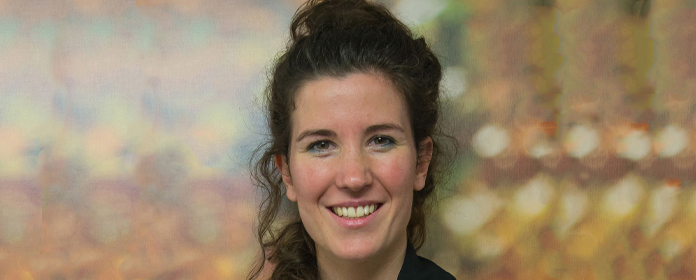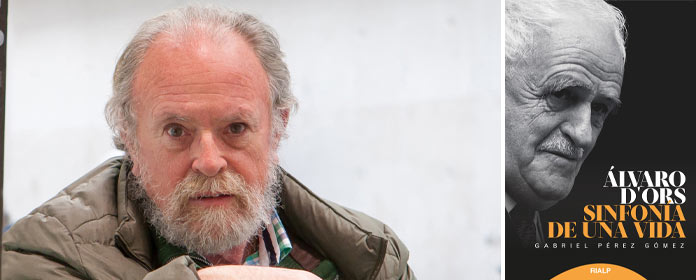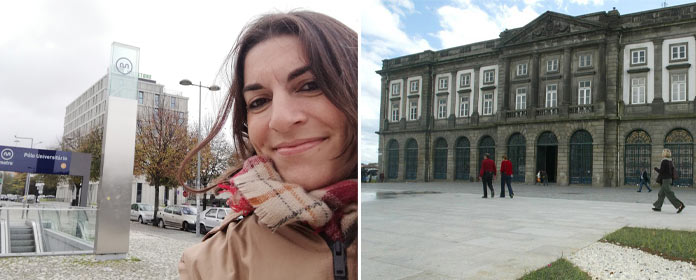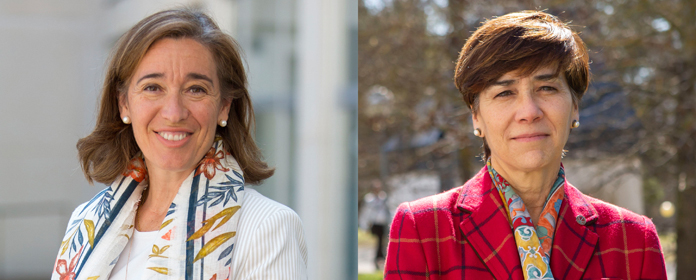ICS selects six projects from research in its internal call for proposals on 'Social links and development'
They will focus on gratitude in palliative care, human habits, European identity, public uses of history in Spain today, freedom of expression in social networks and the interrelation between music, liturgy and religious architecture.

Six projects of research have been selected in the internal call made by the Institute for Culture and Society (ICS) of the University of Navarra, in the framework of the topic "Vínculos sociales y development" and the three convergent lines: 'Be human-being human', 'Challenges of the Hispanic world' and 'Europe and its identity'. A total of twelve applications were received and evaluated by experts.
The projects will begin on September 1, 2020 and will be developed over the next three years. They are 'The phenomenon of gratitude in the field of palliative care', with María Arantzamendi, from the ATLANTES Program, as researcher manager; 'The habits of the human being: Cognitive enrichment, flexibility and creativity', led by Javier Bernácer, from the group 'Mind-Brain'; MYOUROPE, which will be directed by Sarali Gintsburg, from 'Public discourse'; 'The present of the past, the public uses of History in Spain today', which will be led by Anna Dulska, from 'Creativity and Cultural Heritage'; 'La agresión verbal ante la libertad de expresión en las redes sociales', led by Dámaso Izquierdo, from 'Public discourse'; and 'internship musical, espacio y liturgia en las catedrales españolas de la Edad Moderna', at position by Albert Recasens, from 'Creativity and Cultural Heritage'.
-
The phenomenon of gratitude in the field of palliative care. Analysis of its ethical and anthropological relevance.
Duration: 2 years.
Convergent line: 'Be human - ser humanos'.
The problem or question to whose resolution or answer we aspire to contribute is that of the ethical and anthropological relevance of the phenomenon of gratitude in the field of palliative care. In this sense, we consider that (1) this phenomenon reveals fundamental aspects of the human person and (2) it contributes decisively to the promotion of a culture of gift or gratitude as well as benevolence or beneficence.
The goal is to account for what is given insofar as it is given. Thus, for example, the analysis of concrete clinical cases can constitute the starting point for reflecting on the relevance of gratitude in the field of palliative care. At the same time, philosophical reflection can be of use to those professionals engaged in this subject of care.
-
Human habits: cognitive enrichment, flexibility and creativity
Duration: 3 years.
Convergent line: 'Be human - ser humanos'.
Habit is an aspect of behavior known both in the academic world and in the rest of society. While for neuroscience and a large part of psychology, habit is an unconscious, rigid, automatic behavior that is alien to the end proposed by the agent, from certain philosophical currents it is a disposition that makes our behavior more flexible for the achievement of greater and greater ends. This project aims to go deeper into what a disposition is from the different answers to the mind-brain problem, to provide a clear definition of cognitive enrichment, and to investigate how creativity is possible through the acquisition of habits. In final, it will help to clarify one of the distinctive features of human behavior, which distinguishes us from other animals and machines.
-
MYOUROPE
Duration: 2 years.
Convergent line: 'Europe and its identity'.
The main goal of this project is to initiate a scholarly conversation on how the "old" Europeans are perceived by the "new" Europeans in the discourses of mass migrations to the continent and to apply these concepts and their articulations on the case of Spain: the "new" Spanish population of Moroccan / Algerian origin. This project will provide a deeper understanding of the discourses of the "new Europeans" focusing on their new home country, their society and their culture, and will help to find the missing piece in the complex puzzle of European identities. The findings will shed light for the design of effective social integration policies in the future.
-
The present of the past, the public uses of history in Spain today.
Duration: 3 years.
Convergent line: 'Be human-being human', 'Challenges of the Hispanic world' and 'Europe and its identity'.
position The project proposes an interdisciplinary approach to the public uses of the past, with representatives from fields such as History, Communication, Linguistics and Education. First, it will examine the place that public uses of the past have had in the policies of the different governments of democratic Spain and determine whether, throughout its democratic history, there have been deliberate policies towards the past, their character, scope and results at the political, social and cultural levels. Secondly, it will try to identify the perceptions and postures towards the history of Spain in the last century by consecutive cohorts of Spaniards and the intergenerational divergences and convergences that may exist between them. Finally, we will define the impact that public policies towards the past have on the different generations and evaluate their capacity to promote or generate positive, conscious and responsible social attitudes towards the present, especially the capacity for reconciliation and forgiveness.
-
Verbal aggression in the face of freedom of expression in social networks: instructions interdisciplinary for the development of a forensic linguistics focused on crimes against honor, speech hate and glorification of terrorism.
Duration: 3 years.
Convergent line: 'Be human-be human'.
Often, speakers are not fully aware of the great repercussion that their words can have when they disseminate them through social networks. The disinhibition generated in the Username by the perception of anonymity that comes from the use of social networks favors that these end up attracting multiple forms of verbal aggression, which has multiplied the risk of producing texts of public importance that may incur in crimes that violate the right to honor, hate crimes or glorification of terrorism. The goal of this project is to identify the relevant criteria for the analysis of those texts published on social networks that are likely to materialize the commission of such crimes, with a view to establishing the instructions for the development and consolidation of a new branch of Forensic Linguistics especially dedicated to this subject of crimes based on a methodological-descriptive and systematic apparatus of its own.
-
internship music, space and liturgy in Spanish cathedrals of the Modern Age
Duration: 3 years.
Convergent line: 'Challenges of the Hispanic world'.
Despite the progress made in recent decades by musicology in the knowledge of religious music in Spain, there are numerous gaps on the musical internship in cathedrals, collegiate churches, convents and parishes in the Modern Age. Not in vain were they the places of training and work par excellence of musicians, as well as the main centers of production. Hence, most of the written musical repertoire preserved in Spain is religious. Only through an interdisciplinary research , which includes musicology, history, art history, liturgy, architecture and music internship, will it be possible to adequately analyze different interpretative aspects of music in the Spanish cathedrals of the modern period. It will be especially interesting to examine the relationships with Ibero-American religious centers and to frame the results in the European context (Italy, France and the former Netherlands in particular).




